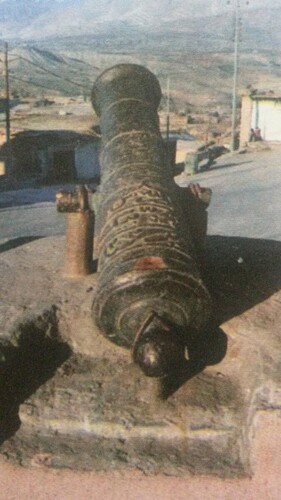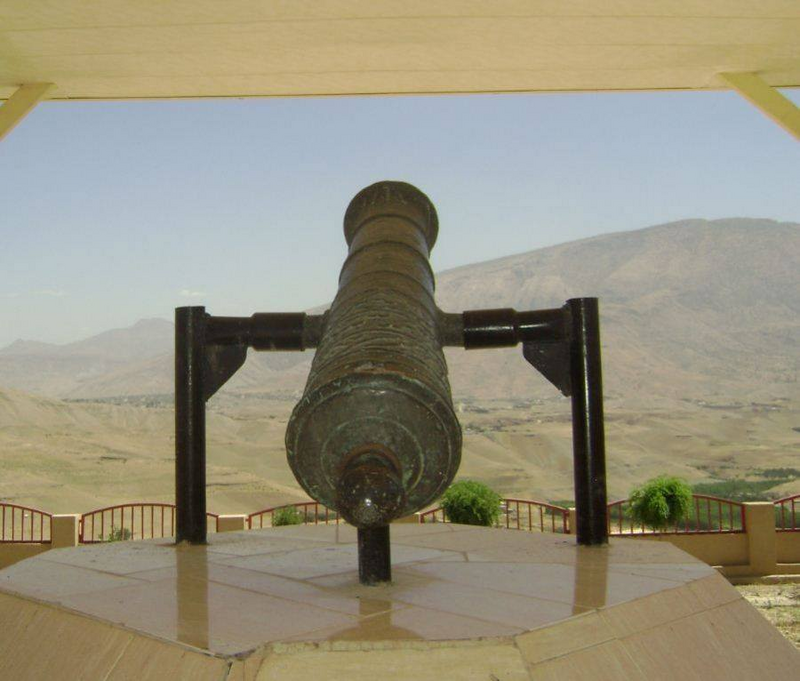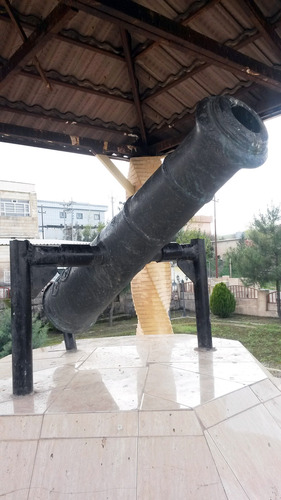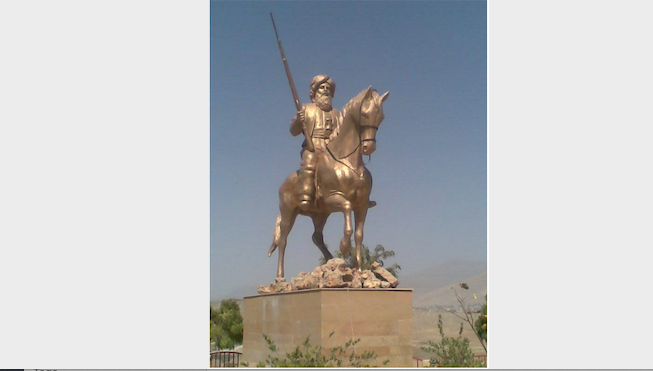Keyhan Mohammadi-Nejad
Mir Mohammad Ruwandzi, known as Miri Soran, fought against the Ottoman and Safavid Emperors and he established the Great Kurdistan. He also built armament factories.
Mir Mohammad was Mir Soran Mustafa's son and was known as the Great King. He was born in Ruwandz at the end of the eighteenth century or 1788 to be exact. Mir Mohammad began his education with Mullah Ahmad Delaja and Mulla Ibn Adam in Delaja village in the Balakayati district. Mir Mohammad accompanied his father in many battles, struggles, hunting, and visiting the other Mirs.
During the reign of Mir Mustafa, the Soran district expanded. In 1813 Mir Mustafa contacted his son, Mir Mohammad, to become his successor. Mir Mohammad rejected his father's request at first, however, after his father asked him several times, he received all the power and accepted it finally, but he did this on three conditions.
Those conditions were as follows:
1. His father and mother must help his district every month; his father must pay 60 thousand Rials and his mother should pay 30 thousand Rials.
2. His father cannot interfere with his authority under any circumstances.
3. His father should leave Ruwandz castle and move to Akoyan castle.

At first, his father did not accept his conditions but after a year he contacted his son and told him he would agree with his conditions, thus Mir Mohammad became Mir of Ruwandz.
First, Mir Mohammad defeated his enemies and those who were against the Kurds and then he began to strengthen his army and build new castles all around Ruwandz.
Soon he united all the Kurdish Mirs. He built an armament factory to manufacture weapons and cannons. It was very essential for Kurds to be able to manufacture weapons and cannons and not to buy them from any other country. He began to build several large castles and a very high wall around Ruwandz. In order to prevent the enemies' invasions, they installed heavy weaponry over the castles and towers surrounding Ruwandz.

Mir Mohammad wanted to do everything he could to build an independent land. He established several security offices and a court in Ruwandz to investigate the internal affairs of the country.
He also established several committees:
1. War Committee that included 5 members, preparing themselves for upcoming battles and wars. Their duty was to prepare an army and manufacture weaponry.
2. The Leaders Committee included 6 members whose job was to observe and manage the country's official affairs.
They also were responsible for building roads, and walls, and mint factories to mintage coins. On one side of these coins, Mir Mohammad's name was carved and on the other side of it, there was the name of Ruwandz.
3. The Scientists and Intellectuals' Committee. They were responsible for making laws for the society to follow them.
They also built schools to make the Mirs' relationships stronger and unite all of them in Kurdistan. Another task of the Soran district was to bring European technologies into Kurdistan.

During an attack, Mir Mohammad could liberate the surrounding regions of Hawler, Pirde district near Kirkuk, Koya, and Ranyia from the control of the Ottomans. This area possessed a very good trading situation which made Mir Mohammad more powerful due to the economic benefit of this region and the taxes they paid. On the other hand, the Ottoman Caliphas were getting weaker due to the wars they were occupied in.
Mir Mohammad's army was united with the army of all the other Mirs in Soran region and they defeated the Ottomans under Mir Mohammad's command. Now, Mir Mohammad began to expand his territory and took control of these areas: Ruwandz to Suleimani, Mosul to Merdin, Raniya, Jazira and Botan, Akre, Hawler (Erbil), and Koya. This made the Ottomans very annoyed.
Mir Mohammad did not fight the Ottomans only, but he also was involved with the Safavids. He was working to make an independent Kurdistan. In a short time, the Kurdish army also liberated many parts of the eastern part of Kurdistan. Mir Mohammad had become a nightmare for Iran's king too. Iran promised to retreat from all parts of Kurdistan gradually, but they needed time to do so. The Ottomans and the Safavids used this opportunity to transfer their battles into Kurdistan lands and they attacked the Kurdish government. Despite this, the Kurdish army destroyed the Ottoman army strongly. When the Ottomans figured out, that they were not able to defeat Mir Mohammad on the battlefield, they began to spy and conspiracy. Although Mir Mohammad was the head of the government, the Ottomans had great influence on the Sheikhs and religious figures in Kurdistan because at that time the religious people believed that the Ottman Caliphas were fighting for Islam.

The Ottomans asked the Sheikhs and religious figures to help them to defeat this Kurdish uprising. First, Mullah Khatti who was an influential person in all Kurdistan, provoked most of the Sheikhs and Mullahs in Kurdistan against Mir Mohammad. They used to spread out their propaganda against him among people. He made the people believe that Mir Mohammad was not a good person and that he was a non-believer. Some of the Mullahs also followed Mullah Khatti and they would talk negatively about Mir Mohammad in the mosques; "We should not fight Islamic Caliphas. Any Kurds that are fighting against the Ottomans will be a non-believer."
The Sheikhs and religious people used to call Mir Mohammad names such as "blind Mohammad" to serve the Ottomans. Unfortunately, in Kurdistan and the world's history, Mir Mohammad is known as the "blind Mohammad". Thus, most of the soldiers in Mir Mohammad's army surrendered themselves to the Ottomans which enabled them to attack Mir Mohammad's territories, however, they still could not defeat him. Once again, the Ottomans got defeated so they decided to implement another plan. In their second plan, they tried a classic tactic which was a diplomatic and deceiving way.

They sent an ambassador to Mir Mohammad and invited him to one of the Ottoman Pasha's castles in Istanbul. Mir accepted it. He demanded to be escorted by an armed group of soldiers. The Ottomans received him and his army. After a few days of negotiations, the Ottomans accepted his demands. The Ottomans asked him to go back by ship in the sea so that his army and himself, would get back home safely. Mir Mohammad accepted it. However, the Ottomans had prepared themselves to assassinate him. When he reached the black sea, Mir Mohammad and his soldiers got slaughtered in an inhumane way and then they were thrown into the sea. According to the historical sources, Mir Mohammad was assassinated by the Ottomans in 1837.
Some historians and researchers believe that when Mullah Khatti was speaking against Mir Mohammad and was provoking people against him, the Ottomans attacked him and captured him and later they hanged him in Sewas. Some others say that he was killed in Trabzon and was buried there. Yet another group of historians say: that the Ottomans tortured Mir Mohammad in Istanbul, then they let him go back to his homeland but they killed him in Sewas.
Unfortunately, Mir Mohammad's rule was deteriorated. The reason for this was some religious figures' treason one of whom was Mullah Khatti.








